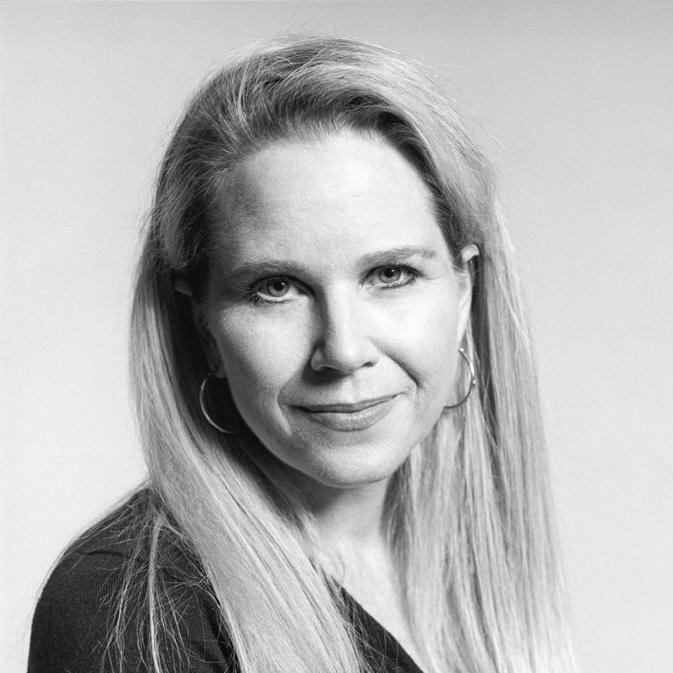ALUMNI STORIES
Finding Bravery Between Life and Death

Amy Beard Low ’93 beat the odds. She survived more than five years with Stage IV metastatic colon cancer, one of the few to endure that long. Her brave, devastating battle ended November 27, 2024, in Arizona, where she was consulting a specialist. In September, she spoke about brutal new side effects while lamenting the woeful underfunding of research into the second leading cause of cancer deaths. Amy had hoped to survive and benefit from new treatments.
She spent her professional life writing for others, seeking justice and truth through storytelling. “My career has always been about words,” she said. “Westmont gave me space to develop my voice.” She served as managing director for fellowships and nonprofit journalism at Emerson Collective, addressing education reform, immigration and climate change. Previously, she sought to reduce rural poverty as chief advocacy and engagement officer at Landesa and spent nearly a decade working with the Bill & Melinda Gates Foundation, promoting education reform and early learning and seeking solutions to family homelessness.
In her Substack, “Postcards from the Mountain,” Amy honestly chronicled her life with cancer. At some point, she realized she was writing primarily to her teenage children, Lucy and Connor. “I have fancy people in my interesting professional life such as world-class journalists and CEOs,” she said. “Many of them read my blog. But my kids didn’t. Still I wrote about what I hoped for them and what I’m learning about joy and sorrow, gratitude and grief.”
Mark Tauber ’90, founder and president of the Watermark Agency and her agent, encouraged Amy to write a memoir. She decided to focus on her story and insights — not the cancer — and hoped it would resonate with Christian friends and be inviting to those without a commitment to faith. In June, she published “The Brave In-Between: Notes from the Last Room” (Hachette Books, 2024).
The book explores the mystery of the middle: She was still living but close to dying. She’d entered her last room, and she found purpose there. She grew up hearing that God had a wonderful plan for her life, and she thought she’d done everything right. She went to Westmont, started her career, stayed true to her faith and values, married a fellow alum and had two kids. Then her life fell apart. At 48, she learned she had terminal cancer not long after dealing with a painful divorce. “I experienced miracles and joy — and a horror show,” she said. “That’s not a contradiction; both are true.” She learned to embrace both joy and sorrow and understand life as both beautiful and brutal at the same time.
“We know intuitively that terrible things will happen, but we think we need to avoid them,” she said. “But the most common command of scripture is, ‘Don’t be afraid.’ If we live with courage, when we get the worst possible news, we can draw on that bravery. A new story has started. We may not like it, and it’s going to be hard. But when we lead with courage, gratitude begins. We get new eyes and see things we’ve never seen before. I know what it’s like to be afraid for my life. Some-times fear overwhelms me, but then I pray. When you choose courage over fear, it’s glorious.”
“But the most common command of scripture is, ‘Don’t be afraid.’”
“We know intuitively that terrible things will happen, but we think we need to avoid them,” she said. “But the most common command of scripture is, ‘Don’t be afraid.’ If we live with courage, when we get the worst possible news, we can draw on that bravery. A new story has started. We may not like it, and it’s going to be hard. But when we lead with courage, gratitude begins. We get new eyes and see things we’ve never seen before. I know what it’s like to be afraid for my life. Sometimes fear overwhelms me, but then I pray. When you choose courage over fear, it’s glorious.”
A hero emerges in the book: Shirley Mullen, a former history professor and provost at Westmont and Houghton College president. “I was struggling, and we had deeply clarifying conversations,” Amy said. “She told me, ‘You’re in this amazingly hard and very holy space, and your job is to become more of who you are and be true to yourself.’ She was my mentor at Westmont, and what the college gave me as an undergraduate came around again in 30 years.
“Westmont gave me a deep and thoughtful education and made me stronger,” she said. “It engaged me on a deep intellectual level and a deep spiritual level.” She stayed in touch by serving on the Westmont Board of Advisors, and the college recognized her as one of 85 inspiring honorees during its 85th anniversary celebrations in 2022.
“Why haven’t I been cured?” Amy asked. “That’s the hardest of all the mysteries, and I accept that I won’t know. I’m still here because people pray for me — I’m part of a much bigger story. God has become more present in my life through hardship than mountaintop experiences.”
By bravely and truthfully telling her story, Amy left a legacy for her children, now college students, and for anyone struggling with the worst possible news in life.